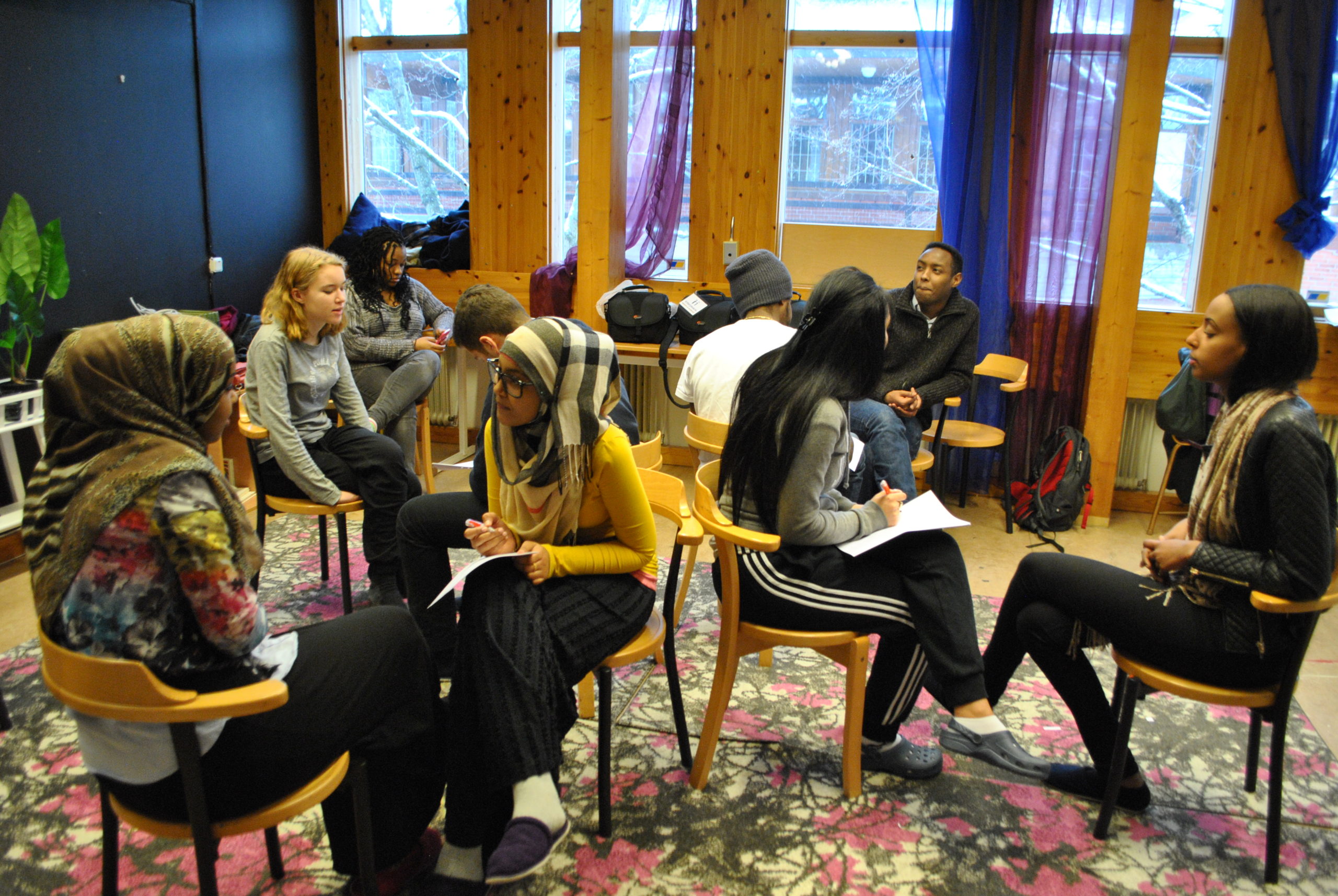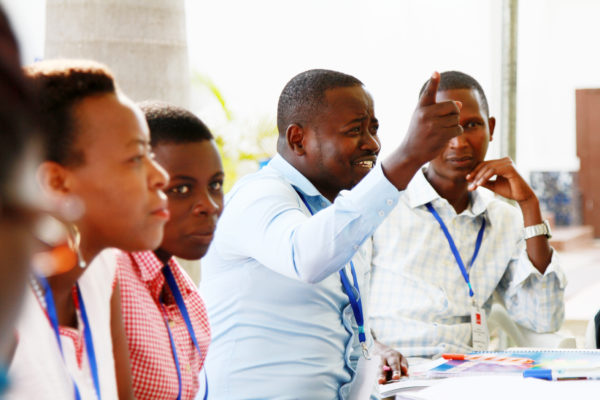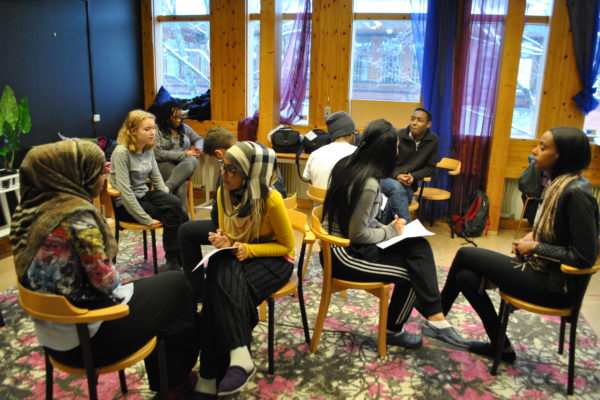UN Security Council gives a welcome boost to Youth, Peace and Security

The United Nations Security Council has adopted its third resolution on Youth, Peace and Security (YPS): UNSCR 2535. It signals the Security Council’s determination to drive forward practical action on YPS, and to do so in an integrated and coordinated way across the United Nations system as a whole.
There are still troubling indications that young people are seen as a ‘problem’ at risk of being radicalised and caught up in security challenges worldwide. The challenge now is to ensure that the Security Council’s political will is converted with resources and actions into effective implementation and delivery.
Interpeace was active in the lead-up to UNSC 2535 and is developing initiatives to support its implementation. Interpeace will also be publishing policy and practice briefings on YPS that are co-authored with young peacebuilders.

Photo credit: CENAP
Co-sponsored by the Dominican Republic and France, the new UN Security Council Resolution (UNSCR) 2535 on Youth, Peace and Security (YPS) is the third and also the most action-oriented YPS resolution adopted by the UN Security Council so far. The Resolution provides guidance for the implementation of the YPS agenda both at the country and headquarters level in the UN system. The Resolution raises the bar in five key ways, which have been analysed in this briefing paper. In sum:
First, UNSCR 2535 cements the priority of the YPS in the UN by requiring joined-up action across the operational siloes across the UN, requiring the UN Secretary-General to submit biennial reports on the implementation YPS agenda, and requiring YPS thus to appear regularly on the Security Council’s agenda. This ensures that action will occur and that there will be accountability and transparency across the UN system.
Secondly, UNSCR 2535 reasserts and tightens the relationship between the global YPS agenda and the ‘Sustaining Peace’ agenda, and also consolidates connections with the ‘Women, Peace and Security’ agenda including a repeated commitment to the distinct experiences and roles of young women.
Thirdly, UNSCR 2535 recognises the demographic of youth through a peacebuilding lens and offers a powerful – and essential – vehicle to integrate peacebuilding and prevention efforts across all phases of peace and conflict cycles, not just in post-conflict contexts.
Fourth, UNSCR 2535 introduces new political commitments through its emphasis on meaningful participation of youth. This also goes beyond formally mediated peace processes, by acknowledging the value of youth participation in post-conflict humanitarian context including reconstruction, rehabilitation and recovery effort as well as in reconciliation processes. This builds positively on the two previous Security Resolutions on YPS (UNSCR 2250 of 2015 and UNSCR 2419 of 2018).
Fifthly, and perhaps of greatest significance, UNSCR 2535 recognises for the first time, “the structural barriers that limit the participation and capacity of young people”, acknowledging that this particularly impacts young women. It makes a reference to “protecting civic and political space” where young people can legitimately and freely express themselves, which is arguably precedent-setting in bridging the peace and security, and human rights pillars of the UN.
Finally, though, UNSCR 2535 also restores the problematic reference to the threat of youth radicalisation that had been excised from the earlier UNSCR 2419, as well as from the recent Presidential Statement which was adopted following the open debate organised by South Africa on “Youth Silencing the Guns by 2020”. In this respect, Resolution 2535 runs the risk of reinforcing the policy panic on youth and violent extremism and the ‘securitisation’ of the YPS agenda.

Photo Credit: Interpeace.
The concern about young people and extremist forms of violence can only be addressed satisfactorily when meaningful efforts are made to counter the “violence of exclusion” of young people.This sentiment was expressed by young people themselves in the “Missing Peace: Independent Progress Study on Youth, Peace and Security” report. Specifically through its reference to the United Nations Youth 2030 Strategy of the Secretary-General, the Resolution calls on governments to invest in the resilience, resourcefulness and inclusion of young people to build peace, rather than in risk-based approaches which project young people as a potential threat, alienate them, close down their arenas of political participation, and inhibit their engagement in peacebuilding.
Next Steps
As a practical follow-up to this Resolution, Interpeace plans to develop initiatives to support the implementation of UNSCR 2535, including in the areas of education for resilience; deepening young people’s participation in peace processes; developing youth-oriented ‘peace responsive’ peacebuilding programmes in the field; and, engaging in YPS through the intersection between peacebuilding and human rights.
In anticipation of the 5th Anniversary of UNSCR 2250 (the first ever Resolution on YPS), Interpeace will also produce a series of new policy and practice briefs co-authored by and amplifying the voices of young peacebuilders themselves. These policy and practice briefs will be published on this website in the coming months.
Click here to read the full analysis.
